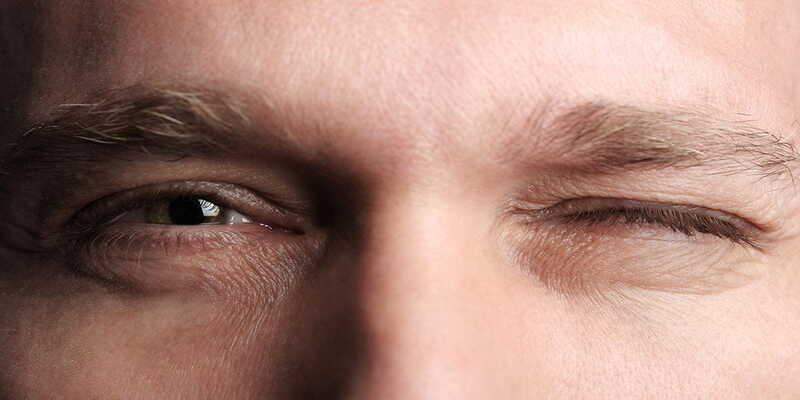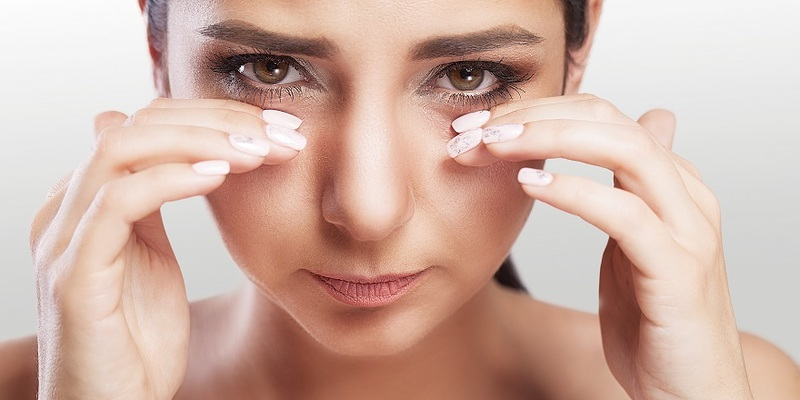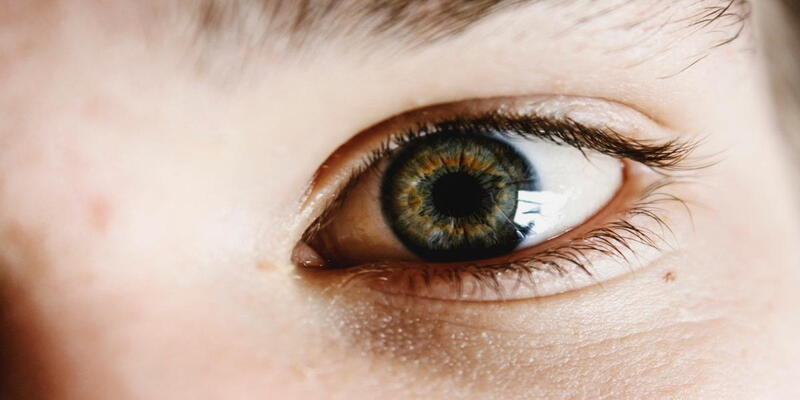What is "Eye Twitching"? Twitching of the eye is a common, occasionally genetic disorder that falls into two broad types. Iris myokymia is characterized by infrequent eye twitching and often does not need medical intervention. This kind of blepharospasm, known as benign essential blepharospasm, causes the eyelids to tighten involuntarily and either partially or completely close. Benign essential blepharospasm may substantially impact patients' quality of life and often requires ongoing therapy. Blepharospasm, more often known simply as eye twitching, is a disorder in which the muscles surrounding the eye twitch or spasm involuntarily. Eye discomfort, including dryness and itching, may result from this. Eye twitching may range in severity from being a little inconvenience to being a chronic disorder that severely impairs one's vision.
What Causes Twitching Of The Eyes?
Ocular myokymia is a frequent condition that causes eyelid twitching. This does not harm and will not cause any complications. Excessive sleep deprivation, coffee use, and psychological stress have all been linked to ocular myokymia. Benign essential blepharospasm is one of the potential causes of chronic and regular eye twitching. This refers to the simultaneous closure or twitching of both eyes. The specific etiology is unknown. However, it has been linked to difficulties in eye muscle function. Problems in the basal ganglia (a brain region) are also suspected. Some persons may be predisposed to developing eye twitches due to inherited factors.
Eye twitching is usually caused by a brain or neurological system disorder, although there are rare cases when this is not the case. Among these issues are:
- Parkinson disease
- Traumatic brain injury caused by infection or a stroke. This is particularly true for the thalamus, basal ganglia, and brain stem.
- Response to certain antipsychotic medications
- Meige's disorder. A disturbance of movement caused by the neurological system.
- Ailment caused by multiple sclerosis
- Facial hemifacial spasm
- Cerebral palsy, or Bell's palsy
What Are The Signs And Symptoms Of Eye Twitching?
The degree and frequency of eyelid twitching vary widely. Others have involuntary twitching of the eyelids every few seconds. Some people may experience them less often. The twitching in your eyes might linger a few days or more and then gradually fade. Eye twitching might become more frequent in certain individuals over time. Many other people get a permanent resolution to their problems. The lower lid seldom moves involuntarily. While it's more common for both eyes to twitch, it might happen in only one. Your eyelid may not close all the way, or there's a chance it could.
- Eyelid spasms are only one of the symptoms you may experience.
- Itching in the Eyes (often a first symptom)
- Rapid eye movement (or blinking)
- Sensitivity to light
- Having dry eyes
- Tics that occur often may cause issues with vision.
Uncontrollable Muscle Contractions In The Face

Eye twitching symptoms subside when you sleep or focus intensely on a challenging activity. Several activities may temporarily alleviate eye twitching for many people who suffer from it. This might include making eye contact, singing, or touching someone else.
Other factors may also increase the likelihood of experiencing symptoms. There are several, but some of them are:
- Tiredness (fatigue) (fatigue)
- Stress
- Lights, camera, action!
- Driving
- Caffeine
- Some additional factors contributing to bothersome eye symptoms
How Is Twitching Of The Eye Diagnosed?
Your doctor will conduct a thorough history and physical examination. The eyes and nerve system are usually examined thoroughly. Typically, a diagnosis will be made by an eye doctor (ophthalmologist). After ruling out more serious conditions, your doctor may diagnose you as having benign essential blepharospasm or hemifacial spasm, two conditions characterized by involuntary eye movements. There is usually no need for further testing. Your doctor may recommend a CT or MRI scan of the brain in particular situations.
What Is The Treatment For Eye Twitching?

If your eye twitching is mild and you don't have many other symptoms, you may not require therapy. More sleep and less coffee may help reduce your discomfort. Your doctor may suggest injecting botulinum toxin through your eyelid muscles if your twitching disrupts your daily life. In extreme cases, this might stop the contraction by paralyzing the muscle. Eye twitching may be treated with medication, which your doctor may recommend. These medications often only provide temporary relief from symptoms. They're assisting some.
Conclusion
A twitch of the eyelids or the lashes is a rapid, involuntary eye movement. It occurs independently, and you have little to no say. Eye twitches are a common occurrence that affects the vast majority of the population. The motion is often quite little and non-threatening. While most cases of twitching in the eyes are harmless and quickly forgotten, certain twitches may be persistent and even impair vision. It's normal to question what's up when they bother you like this. If your eye twitch is causing discomfort, or if it won't stop, determining the cause might aid you and your doctor in developing an effective treatment plan.




